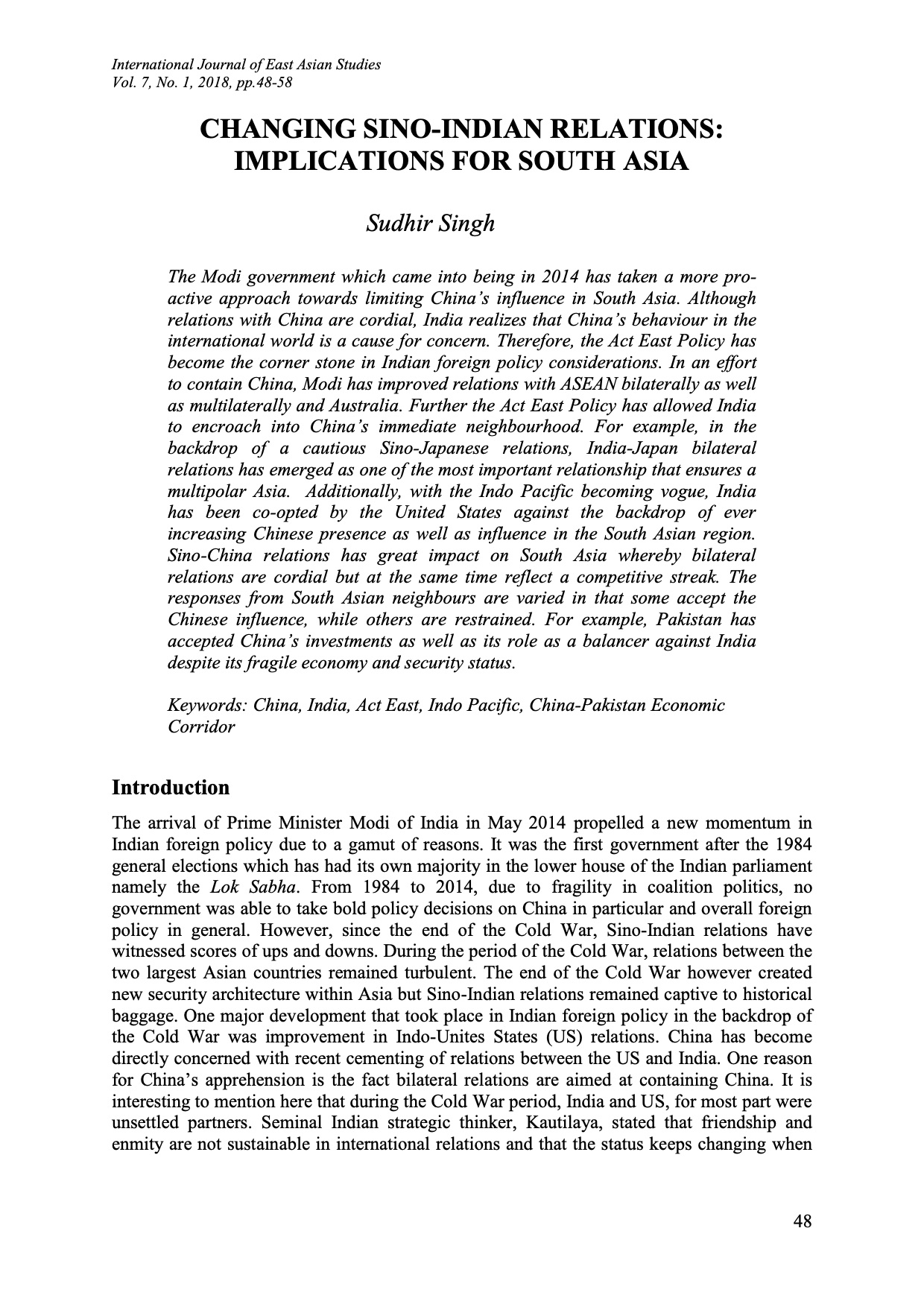Changing Sino-Indian Relations: Implications for South Asia
DOI:
https://doi.org/10.22452/IJEAS.vol7no1.3Keywords:
China, India, Act East, Indo Pacific, China-Pakistan Economic CorridorAbstract
The Modi government which came into being in 2014 has taken a more pro-active approach towards limiting China’s influence in South Asia. Although relations with China are cordial, India realizes that China’s behaviour in the international world is a cause for concern. Therefore, the Act East Policy has become the corner stone in Indian foreign policy considerations. In an effort to contain China, Modi has improved relations with ASEAN bilaterally as well as multilaterally and Australia. Further the Act East Policy has allowed India to encroach into China’s immediate neighbourhood. For example, in the backdrop of cautious Sino-Japanese relations, India-Japan bilateral relations has emerged as one of the most important relationships that ensures a multipolar Asia. Additionally, with the Indo Pacific becoming vogue, India has been co-opted by the United States against the backdrop of ever increasing Chinese presence as well as influence in the South Asian region. Sino-China relations have a great impact on South Asia whereby bilateral relations are cordial but at the same time reflect a competitive streak. The responses from South Asian neighbours are varied in that some accept the Chinese influence, while others are restrained. For example, Pakistan has accepted China’s investments as well as its role as a balancer against India despite its fragile economy and security status.
Downloads

Downloads
Published
How to Cite
Issue
Section
License
Copyright
Submission of a manuscript to the WILAYAH implies that the submitted work has not been published before (except as part of a thesis or report or abstract), that it is not under consideration for publication elsewhere; that all co-authors have approved its publication. The WILAYAH : International Journal of East Asian Studies adopts CC BY license. As such, we would be grateful if an acknowledgement accompanies the republication that the work was originally published in WILAYAH. The editors will ensure digital preservation of access to the journal content by the Journal depository section.
Disclaimer
Although the Department of East Asian Studies is the publisher of the WILAYAH : International Journal of East Asian Studies, the views presented in the WILAYAH are entirely those of the contributors and do not reflect the official stand of the Department of East Asian Studies. The Department does not hold itself responsible for the accuracy of any article published. Publisher and co-publishers assume no responsibility, nor by the editors for any injury and/or damage to persons or property as a result of any actual or alleged libellous statements, infringement of intellectual property or privacy rights, or products liability, whether resulting from negligence or otherwise, or from any use or operation of any ideas, instructions, procedures, products or methods contained in the material therein.





